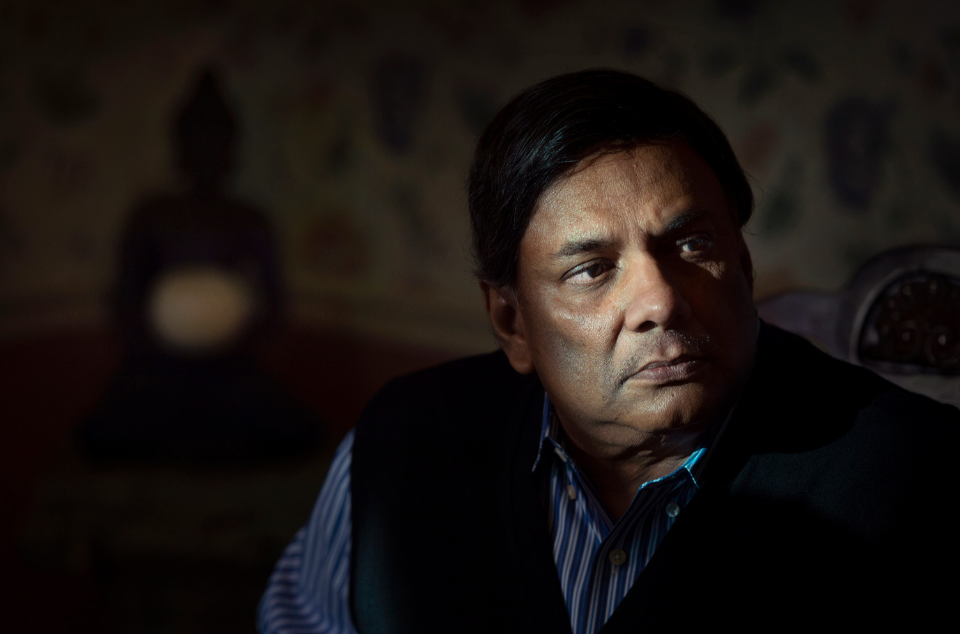It has now been a year since Ashim Mitra, the former UMKC pharmacy professor who stands accused of abusing his students and stealing valuable research, resigned.
In a few weeks, it will have been a year since the great softball controversy, in which members of UMKC’s women’s softball accused their coach of trying to catch them naked in the locker room.
A little further down the road, it will have been a year since conservative podcaster and provocateur Michael Knowles was sprayed with lavender soap by a student, which led some Missouri lawmakers to call for Chancellor Mauli Agrawal’s resignation.
Last spring semester certainly set the bar high for this one in terms of excitement. Though of course, this was not the type of excitement that UMKC administrators would be hoping for in the future.
What has changed since that time? Has there been sweeping reformation of policy? The turning over of a new leaf? A renewed commitment to essential values?
I believe the answer is “no.”
For the first two incidents of yesteryear, the university scarcely acknowledged any wrongdoing on its part.
The case of Mitra continued to fester long after his departure from campus. It was discovered he had stolen a student’s research on high-tech eye droplets, making millions in profit. Later on, the university fired yet another pharmacy professor under unknown circumstances, bringing further suspicion. Shortly afterward, it paid another pharmacy professor who had been a whistleblower in the case a settlement to the tune of $360,000.
Throughout it all, the university was the opposite of forthcoming. In each instance, it took the investigative work of The Kansas City Star to uncover what was happening. Without the efforts of reporters at The Star, no one would have even known of Mitra’s wrongdoing, which had been carried out for years without interference from university administration. The whistleblower had filed his lawsuit over two years before, giving an indication of how long the university allowed the situation to go on.
In the softball case, the story was the same. After The Star published its article, there was a mess of competing narratives that left the entire school unsure of what to think.
The main problem in both of these cases was transparency. Has the university become more transparent over the last year? As you ask yourself this question, consider this: Did you know that your tuition went up 5% last year? Where did you find this out? Where did you find out about the other issues that deeply affected UMKC students, such as the abuse of Mitra?
In regards to the Michael Knowles incident, there is a small glimmer of hope. Another unexpected arrival of last spring semester, SGA President Justice Horn, made his presence and ambition well known. He was the first to call for proactive change in the wake of the incident, and actually started a constructive discussion about how to resolve such issues in the future. Notice that Horn is not a part of UMKC administration.
While UMKC is eager to announce new plans to spend hundreds of millions of dollars on new facilities and services, they are not so enthusiastic about changing the culture of secrecy and apathy that plagues the school.
While it is true that they have been beleaguered by budget cuts and ire from Jefferson City, there is no excuse. Things like transparency do not have a price tag. So what is stopping UMKC? What will it take to get Kasey Kangaroo to wake up and get hopping into action?
If this continues, the gulf between students, faculty, and administration will only increase. Perhaps the only real hope in this case is the dynamic effort of the revitalized SGA.
But it is not the job of the SGA, or The Kansas City Star, to ensure UMKC has a healthy, open atmosphere. It’s UMKC’s job, and it is about time that they do it.
Time will tell how much this semester will mirror last year’s, and how the university will look going into this new decade.
samuel.bellefy@mail.umkc.edu








